
Lead investigators, presenters, and the chair of this year’s European Society of Cardiology Congress, John McMurray, MD, discussed the meeting highlights and recapped important data.

Lead investigators, presenters, and the chair of this year’s European Society of Cardiology Congress, John McMurray, MD, discussed the meeting highlights and recapped important data.
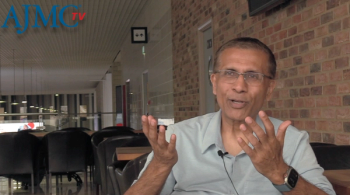
The FINEARTS-HF late-breaking data were forefront at the 2024 European Society of Cardiology Congress in London.

"Now we can actually focus and look at the disease itself, treat the heart disease itself, which is the plaque in the coronary arteries, as opposed to treating the risk of disease," Amir Ahmadi, MD, Mount Sinai, says in an interview at the European Society for Cardiology Congress.
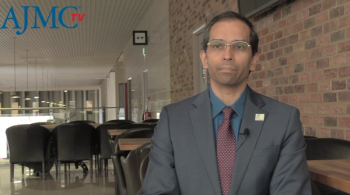
Deepak Bhatt, MD, Mount Sinai Heart, highlights the kidney-specific outcomes of the pivotal EMPACT-MI clinical trial in an interview at the 2024 European Society of Cardiology Congress.
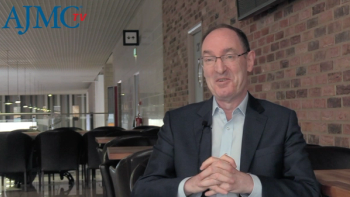
In patients with heart failure with mildly reduced and preserved ejection fraction, finerenone reduced the risk of heart failure worsening or hospitalizations compared with placebo, explained John McMurray, MD, the co–principal investigator of the FINEARTS-HF trial.
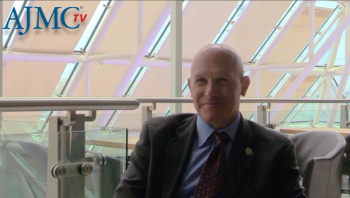
Christopher Kramer, MD, vice president of the American College of Cardiology, discusses the newest data on finerenone for heart failure presented during the FINEARTS Hot Line session at the European Society of Cardiology Congress.

Anna Mueller, MD, and Amir Ahmadi, MD, of Mount Sinai, highlight gaps in risk assessment tools for acute coronary syndrome, calling for more comprehensive screening strategies.

After moderating an emerging science session on acute ST-elevation myocardial infarction care, Dipti Itchhaporia, MD, American College of Cardiology, discussed the growing inclusivity in clinical trials through innovative digital tools and addressed the impact of GLP-1 therapies on cardiovascular treatment.

At the European Society of Cardiology (ESC) Congress 2024, attendees examine how cardiology practice evolves with access to new technology and innovative approaches.
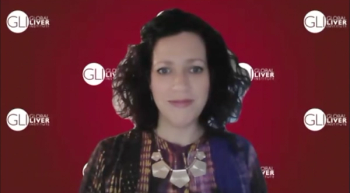
In this interview, Sarah Manes, Global Liver Institute, explores the unique challenges faced by LGBTQI+ individuals, particularly those with disabilities, in accessing and receiving appropriate liver care.

Aetna has become the first major US insurer to expand access to fertility services by covering intrauterine insemination as a medical benefit for all eligible plans, marking a significant move toward greater equity in family-building options for people of all backgrounds.

Medicare has not clearly defined what constitutes "established cardiovascular disease," leading to variability in potential patient eligibility; therefore, researchers aimed to estimate the number of Medicare beneficiaries who would become newly eligible for semaglutide under different definitions.

New research reveals the first documentation of a significant rise in heat-related mortality rates in the US through 2023, contrasting with earlier studies that indicated a declining trend.

Martha Gulati, MD, Cedars-Sinai, discusses the topics expected to be featured at the European Society of Cardiology (ESC) Congress, including a debate she's participating in about the role of hormone replacement therapy (HRT) in primary cardiovascular disease prevention.

Brooke Kempf, PMHNP, from Indiana University Indianapolis, discusses the importance of timely outpatient care and how innovative approaches like long-acting injectables (LAIs) are helping to bridge the gap in treatment for schizophrenia.

Learn more about the negotiated Medicare drug prices and what the FDA's rejection of therapeutic MDMA means for mental health care through expert reactions. Other highlights include pharmacy-based HIV care, gaps in care for gastrointestinal stromal tumors, and the obesity epidemic.

The growing utilization of long-acting injectable (LAI) medications for treating patients with schizophrenia indicates a positive trend in mental health practice, according to Brooke Kempf, PMHNP, Indiana University Indianapolis.

The FDA's decision to reject midomafetamine (MDMA) capsules in combination with assisted psychotherapy (MDMA-AT) for adults with PTSD reignited the controversial conversation around investigative psychedelic therapy.

Health equity news appearing in the August issue of Evidence-Based Oncology.

Along with the company reorganization, Lykos announced it will be reducing its workforce by approximately 75%, with the remaining team focused on continuing efforts in clinical development, medical affairs, and engagement with the FDA.


While the evidence demonstrating the poor state of American women's health is not new, the nation's trends of maternal fatality may reflect broader failures in the approach to women's health care.

Health insurance premiums for 2025 are expected to rise slightly due to higher prescription drug costs and inflation, according to a new analysis from the American Academy of Actuaries.

As the 2024 election approaches, older adults, who comprise more than half of ballots cast, are highly concerned about health care costs, financial scams, and fraud. Concern varies based on gender and political ideology.

News surrounding different aspects of health insurance shows changes in weight loss treatment coverage, billing and claims processing errors, and customer service utilization.
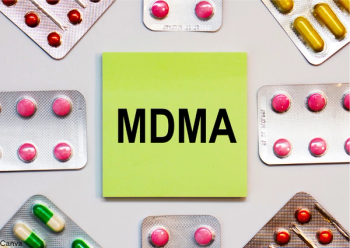
Today, the FDA issued a complete response letter (CRL) for midomafetamine capsules (MDMA) in combination with assisted therapy (MDMA-AT) for adults living with posttraumatic stress disorder (PTSD).

A rundown of where Minnesota Gov Tim Walz stands on health policy issues and actions he's taken to improve health care.

The Ochsner-Xavier Institute for Health Equity and Research (OXIHER) is targeting health disparities in Louisiana, focusing on population health management, outcomes research, health careers and equity education, community engagement, and health advocacy and policy.

Accessia Health works with advocacy groups to understand specific needs, such as travel assistance, affordable care, and diagnostic testing, ensuring a personalized and human-centered approach to health equity.

Over 60 bipartisan members of Congress wrote a letter to President Joe Biden stating the urgent need to address the suicide epidemic among veterans, advocating for innovative treatments like therapeutic MDMA.

259 Prospect Plains Rd, Bldg H
Cranbury, NJ 08512
© 2025 MJH Life Sciences®
All rights reserved.
